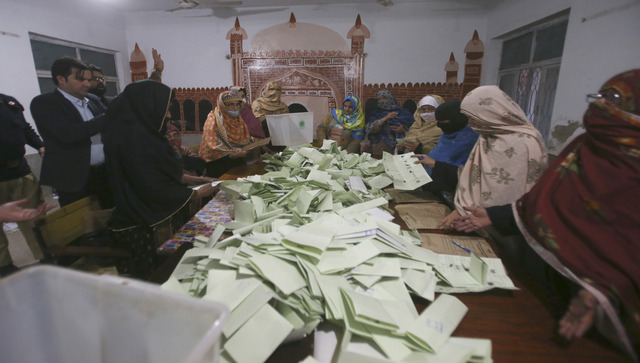The Madras High Court delivered a stinging, and scarcely conceivable, rebuke to the Election Commission of India (ECI), calling it ‘the most irresponsible institution’ that was ‘singularly’ responsible for India’s second wave of COVID-19 infections.
“Were you on another planet?” the bench asked on 26 April. It said ECI officials could be booked for murder, responding to a public interest petition filed by MR Vijayabaskar, Tamil Nadu transport minister and AIADMK candidate in the 6 April Assembly elections. “Public health is of paramount importance. It is distressing that constitutional authorities have to be reminded…,” the bench said.
This was strong censure, of a kind possibly never before addressed to a constitutional body. The Madras High Court has also asked ECI officials to ensure that counting arrangements were safe from the point of view of COVID-19, and fair, given that the petitioner submitted that there were 77 candidates in his constituency and accommodating their agents safely would be tough. The court directed the ECI to submit a detailed report by 30 April, failing which it could stop the counting of votes on 2 May.
Something like this had been coming. It’s not as if elections have not been held in the times of the pandemic. In the biggest one, the presidential polls in the US, one side conducted much of its campaigning virtually or from door to door, maintaining essential protocols. Moreover, credible arrangements were made for mail-in voting, which obviated the need for turning up at booths, and early voting, which ensured people could slip in and cast their votes when crowds were absent or small.
The ECI fell afoul of good sense on many counts, especially in West Bengal, which the Bharatiya Janata Party (BJP) is determined to wrest from the Trinamool Congress (TMC).
In what has been widely interpreted as a move undertaken to please the former, the ECI scheduled the elections over eight phases and almost five weeks, from 27 March to 29 April.
Bengal has 72 million voters and its Assembly has 294 seats, while Tamil Nadu has 61 million voters and its Assembly has 234 seats. Yet Tamil Nadu voted on one day, while Bengal has relentlessly soldiered on for a month already. Massive rallies, troop movements, and traffic to and from the state may have all contributed to the coronavirus surge.
It was only late on 22 April that the ECI restricted canvassing events to those involving no more than 500 people and which followed safety protocols. That the announcements came hours after Prime Minister Narendra Modi cancelled all his events in Bengal didn’t do the ECI’s credibility a lot of good. In any case, Bengal had been host to huge rallies at least since the end of February – elections in four states and one Union Territory had been announced on 26 February.
The other states have suffered as well, with Assam going through a three-phase poll ending on 6 April. It could be argued that when the schedules were announced, the ECI, like other political and administrative players, including Union health minister Harsh Vardhan, had thought that the virus had gone. India had won the war.
But as COVID-19 roared back in early March, was there any excuse for not doing a number of things, most important of which was compressing the schedules? The obvious solution was one day per state, spread out to ensure that resources, including central forces, were adequately available. After all, between the announcement and the first day of polling four weeks were to elapse.
Alongside failing to schedule the elections in a way compatible with the pandemic situation, the ECI failed most notably in issuing detailed guidelines for campaigning activities and making sure they were followed. In Bengal, it got its act together only after the Calcutta High Court pulled it up, on 22 April, the day, as mentioned, Modi cancelled his schedules.
Apart from this, the ECI made completely inadequate attempts to ensure that people in vulnerable groups – especially the elderly – could vote either by postal ballot or some other safe mechanism. It was not that there were no systems in place. The problem was that the ECI did not publicise them properly and could not take them to doorsteps.
A significant number of people were thus disenfranchised, as became evident on 26 April, when many voters in south Kolkata who regularly exercised their franchise earlier had to stay at home.
It is telling that while the ECI has kept its own counsels after the Madras High Court’s harsh admonition, the BJP has stepped in to defend it. Its chief spokesperson in Bengal, Shamik Bhattacharya, said the Indian judiciary was ‘tainted’ and the court had echoed the AITC. He also made some vague allusions to a conspiracy, while BJP president JP Nadda indirectly urged the judges to maintain the ‘dignity’ of words.
Clearly, though, it’s the ECI that has a lot to answer for, not the court.


)




)
)
)
)
)
)
)
)